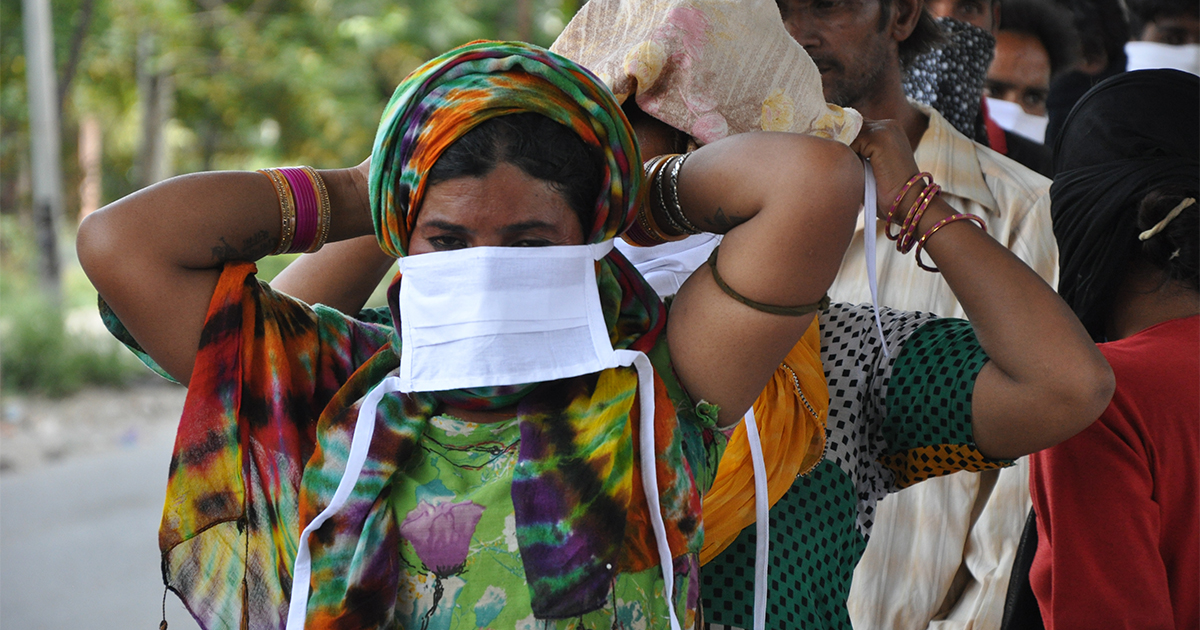
Australia’s recent experience of lockdowns, home schooling and economic downturn have been tough. How do these things play out in places where cases of COVID-19 continue to grow? We talked to one of our partners, Om Prakash (OP) in Amritsar, India, to find out.
UW: What’s the situation in India at the moment OP? We’ve been hearing that maybe the cases have peaked?
OP: Yes, we feel a little hopeful. We had up to 90,000 cases a day a few weeks ago but numbers have dropped in the last two weeks. The rate of testing is still not high enough though and we are very worried about winter coming.
UW: What’s happening with the lockdown? How much has opened back up?
OP: Pretty much all parts of society are open again except for colleges and schools. This is a big danger period for us with shops and malls operating again, but still many people don’t wear the masks, and it’s hard to enforce. But there has been such an economic impact, we can’t afford the lockdown. Many, many people have no work, no income, no food.
UW: What government services are available to help people survive and recover?
OP: Workers and other vulnerable people registered with the government have been allowed a small pension during the pandemic. Two payments of 3000 rupees ($A57.00) have come through. But the problem is that most people are not registered. There is very low awareness in the community of the social services that are available, and people don’t know how to go about getting registered.
UW: That’s a huge challenge! How has your team responded?
OP: Even before the pandemic, we were running education workshops with communities to help people get registered for support. We still do that but we have to be smart and careful about social distancing. We do more door-to-door than in groups, and we use posters and social media. Our main practical impact right now is in education. School is online, but most families don’t have a smart phone to use for their children – there might be only one in each family. Our study centres are allowed to open even though schools can’t and so our staff are helping children who wouldn’t otherwise have access online to keep up with their schooling. Government teachers are in contact with our staff to provide resources; we’re even helping students sit their exams this way. Without these centres, so many children would have lost almost a year of their education, maybe even more.
UW: It’s an incredible role to play – and the church has also been providing income generating opportunities for parents?
OP: Yes, we started with sewing masks and women were gaining skills and some cash to buy food. We have a huge order about to go out to a Motorcycle Rally we have planned for the city to raise awareness about COVID-19 safety protocols. But we have also been helping women make and sell paper bags – plastic bags were due to be made illegal last year right across India because of the environmental impact, but that didn’t end up happening. We’re still committed to providing an alternative and an income opportunity at the same time.
UW: OP, your team’s commitment and innovation is really inspiring! We’re praying for you all.
OP: Please pass on my love and thanks to UnitingWorld and to the people of the Uniting Church in Australia. We are very grateful for your prayers and your investment in our work.
